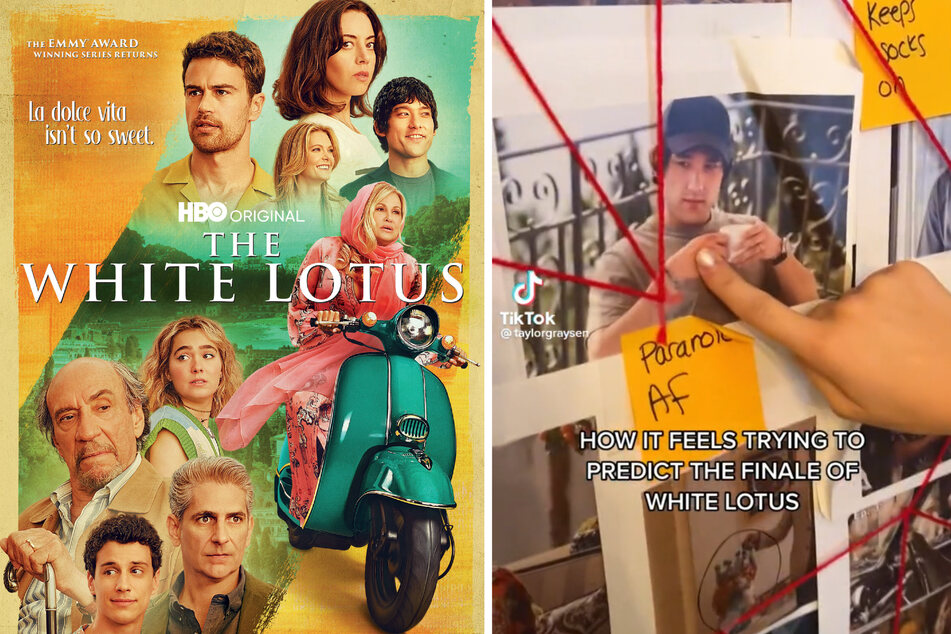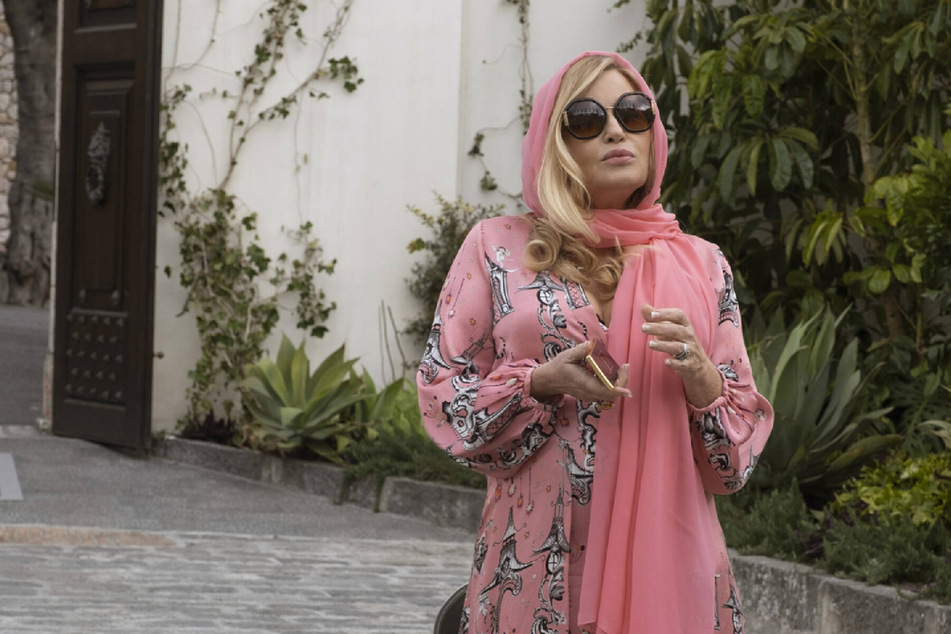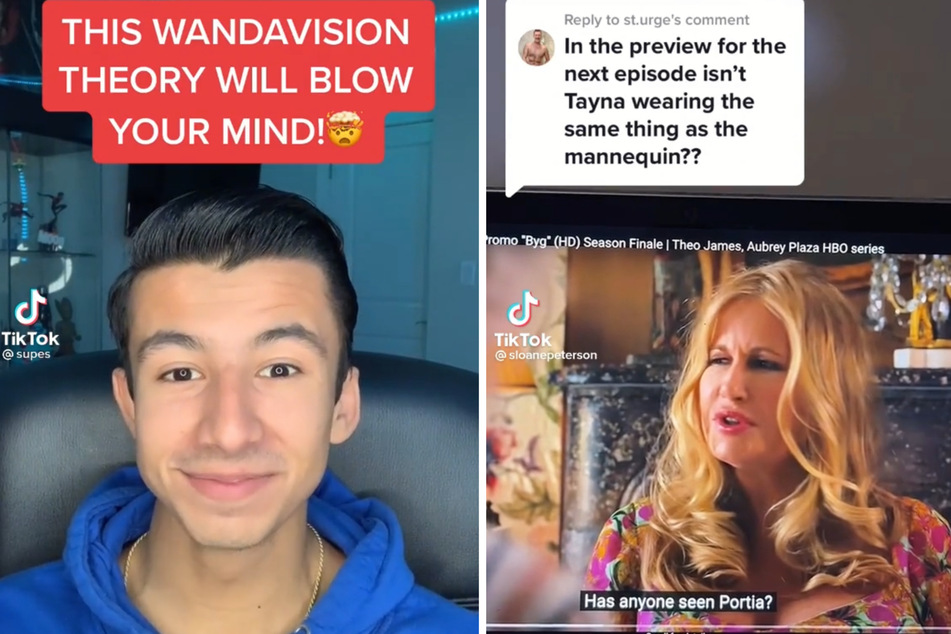The White Lotus: Did social media theories kill the season finale?
New York, New York - Season two of The White Lotus has officially come to a close, and as viewers react to the final episode's events, it's becoming apparent that social media is greatly affecting how TV finales are received.

Warning: Spoilers lie ahead!
The HBO Max show's sophomore season took viewers to Sicily, Italy, where stakes were set even higher than in season one, with the revelation that multiple guests had been found dead at the resort.
As this season's finale loomed closer, The White Lotus fans took to social media to share their rather wild predictions about how the different storylines would come to an end.
Would Ethan kill Cameron in a fit of jealous rage? Would Dominic kill Lucia to cover up his infidelity? Would the overwhelmingly serene Daphne snap and kill everyone?
The finale's outcome was surprising, and fans are still reeling over some big expectations which never came to be.
What happened in The White Lotus finale?

As it turns out, the season's murder was tied to a plot against Tanya, played by season one alum Jennifer Coolidge.
A quick recap: The finale confirmed speculation that Quentin and the men on the yacht were colluding to kill Tanya in order to grant her inheritance to her husband Greg. Desperate to save herself, Tanya finds a gun and shoots several of the men on the yacht, including Quentin. As she prepares to escape, she unceremoniously falls to her death after slipping off the edge of the boat.
Tanya's death-by-clumsiness is certainly in character. The moment made for a great laugh, but for fans who spent weeks creating elaborate murder plot theories, it felt somewhat underwhelming. Most fan theories surrounding who would kill and be killed focused on the two married couples or the Di Grasso family – both of whom were less tied to the show's comedic side, as Tanya was – which maintained a looming sense of tension throughout the series.
Of course, this is The White Lotus we're talking about. Fans need to look no further than the end of season one to remember that this show is ultimately a very well-made satire, not a true murder mystery. The goal was likely never to create a web of deceit that ends with an explosive reveal or a shocking crime of passion.
Social media, however, has become an intriguing rabbit hole of salacious theories about these complex characters. Dissecting what were ultimately red herrings has been downright addictive, and it's been hard for fans not to get their hopes up after seeing TikTok after TikTok predicting the most epic ending you could imagine.
But The White Lotus is not the first, and certainly not the last, to suffer from the impact of fan speculation on social media and the let-down that comes when the theories just don't pan out.
WandaVision and The White Lotus have both fallen victim to the danger of rampant fan theories

In the age of binge-watching, it's increasingly rare that shows provide viewers with the time to develop elaborate plot theories – as a whole season of episodes is often released on streaming platforms in bulk.
With a weekly-release model though, as with The White Lotus, fans are left with their thoughts on a show for an entire week, thus leaving the door open for endless speculation and contemplation.
Any fan of the Marvel Cinematic Universe will remember the similar chaos of last year's WandaVision era all too well. The Disney+ series followed weekly episodes of Wanda Maximoff and the Vision as they were thrust into a bizarre reality inspired by sitcoms from past decades.
With Vision having been killed in Avengers: Infinity War, there was something evidently off about and inviting about the situation from the start. The two-part premiere clearly indicated that Wanda had some form of control over the sitcom reality, as she quite literally rewinds the show at the end.
As the show went on, MCU fans went nuts dissecting every detail of every single episode, looking for clues as to what comic villain (cough, Mephisto, cough) may be pulling the strings behind the scenes.
Unfortunately for speculative WandaVision fans, Occam's razor proved true. There was no big baddie behind it all, and the simplest explanation was right: it was Wanda all along. Overwhelmed by her grief, she unintentionally created the reality using her magic. Ultimately, the show's primary desire was to tell a narrative grounded in the very real experience of grief, rather than getting lost in the multiverse madness of the MCU.
The finale of WandaVision, much like The White Lotus, felt underwhelming for many viewers who held out hope that their outrageous theories may, at least in part, prove true. Comparing The White Lotus to a superhero series tied to a sprawling cinematic universe may seem bizarre, but the impact of the rampant speculation ahead of both show's finales on how they were ultimately received is very much the same.
Though it may be inevitable to have your expectations shaped by social media, judging the endings of series primarily upon whether your theories came true is ultimately a disservice to the stories being told.
Fan theories act as a double-edged sword for popular TV shows

Theorizing by fans on social media is a bit of a double-edged sword. The viral conversation undoubtedly boosts the show's popularity and creates a community among fans, but it also often leads to undue disappointment in the end.
Though fan theories are far from a new concept, TikTok's impact on helping them spread is obvious. Continuous scrolling can send users on a spiral as fans' For You Page becomes more and more infiltrated by common beliefs and speculation.
In The White Lotus' case, many theories put forth by fans early on were, in fact, correct. Several TikTok users shared videos pointing to a plethora of hints that the series provided about Tanya's fate, so it's now clear that the show was never trying to throw viewers off its scent entirely.
Over on the other side of the hotel, it may feel slightly underwhelming that both of The White Lotus' unhappily-married couples have remained together at the end of the season, but it doesn't actually undermine the tension built among them in the last few episodes – or take away from the show.
The storyline actually comes full circle as Ethan embodies exactly what he criticized Cameron for — mimetic desire. He only regains affection for Harper once Cameron has expressed interest in her. And we did get quite the thrilling brawl between the supposed friends in the ocean after all.
Among the other plotlines, Lucia's victory with a clever plot against Albie is quite the satisfying and much-deserved ending for the third-generation – but much more subtle – misogynist.
The White Lotus is an incredibly smart show, and although its fan theories were certainly fun, its ending ultimately served its narrative better than the more dramatic, fan-fueled alternatives.
Fans' repeated exposure to theories through TikTok's addictive algorithm makes expectations of shows almost impossible to shake, but it's a detachment that is essential for modern viewers to fully appreciate their TV watching.
Cover photo: Collage: IMAGO / Picturelux & Screenshot/TikTok/@taylorgraysen

